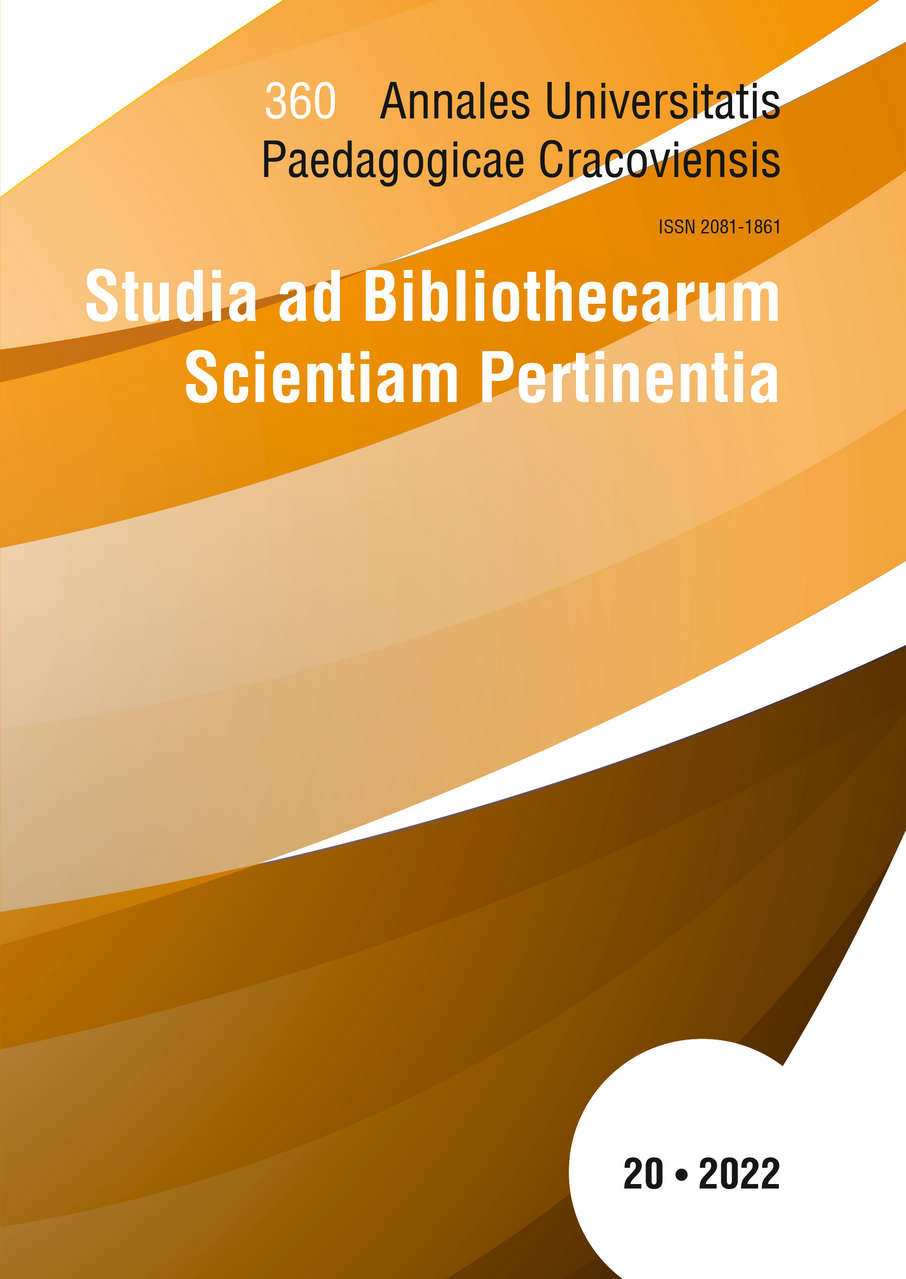Kompetencje cyfrowe młodych dorosłych: modele ramowe a rzeczywiste profile kompetencji. Analiza przyczynkowa
DOI:
https://doi.org/10.24917/20811861.20.39Słowa kluczowe:
communication competences, digital competences, young adults, competence profile, pyramid of competencesAbstrakt
The aim of this article is to explain how young adults use their media competences to understand the digital reality in which they function on a daily basis. The article is preliminary in nature as it refers to the partial results of a larger research project on digital competences of young adults, which has been conducted since 2018 and concerns Polish users of the media sphere. The goal was to show the heterogeneous nature of the selected group in terms of competences necessary for the correct analysis, understanding and interpretation of media messages. In addition, the article highlights the importance of the cultural pattern and strategy of using online and interactive media in Poland. Their specificity results from actual deficiencies in the area of formal education. These shortages are related to the development of language, communication, media, digital and information skills at various stages of education (primary school, secondary school), which significantly affects the media competences of young adults.
Bibliografia
Calvani A., Fini A., Ranieri M., Digital Competence In K-12. Theoretical Models, Assessment
Tools and Empirical Research, “Analisi” 2010, nr 40, s. 157-171, [on-line:] https://ddd.uab.cat/pub/analisi/02112175n40/02112175n40p157.pdf - 18.11.2022.
Ilomaki L., Kantosalo A., Lakkala M., What is digital competence? Linked portal, Brussels 2011, [on-line:] http://linked.eun.org/web/guest/in-depth3 - 28.11.2022.
Global Media and Information Literacy Assessment Framework: country readiness and competencies, 2013, [on-line:] https://unesdoc.unesco.org/ark:/48223/ pf0000224655 - 27.11.2022.
Nowina Konopka M., Narzędzia CLARIN w praktyce badań medioznawczych, „Zeszyty Prasoznawcze” 2019, t. 62, nr 4 (240), s. 113-122.
Ogonowska A., Przemoc ikoniczna. Zarys wykładu, Kraków 2004.
Postprawda. Nowe narracje i praktyki społeczne w epoce sfingowanych informacji i gatunków hybrydycznych, red. A. Ogonowska, M. Stoch, A. Walecka-Rynduch, „Studia de Cultura” 2019, t. 11, nr 1.
Rizza C., Digital Competences, 2013, [on-line:] https://www.researchgate.net/publica-tion/264309994_Digital_Competences - 18.11.2022.
Rudnicka P., Gotowość wobec technologii. Konteksty, definicja, pomiar, Katowice 2021.
Sillat L. H., Tammets K., Laanpere M., Digital Competence Assessment Methods in Higher Education: A Systematic Literature Review, “Education Science” 2021, nr 11, s. 1-17, [on-line:] https://www.mdpi.com/2227-7102/11/8/402 - 28.11.2022.
Tokarski R., Tradycje badawcze w leksykologii a semantyka rozumienia, 2011, [on-line:] https://repozytorium.uwb.edu.pl/jspui/bitstream/11320/9767/1/R_Tokarski_ Tradycje_badawcze_w_leksykologii_a_semantyka_rozumienia.pdf - 15.11. 2022.
Pobrania
Opublikowane
Jak cytować
Numer
Dział
Licencja
Prawa autorskie (c) 2023 AUPC Studia ad Bibliothecarum Scientiam Pertinentia

Utwór dostępny jest na licencji Creative Commons Uznanie autorstwa 4.0 Międzynarodowe.

